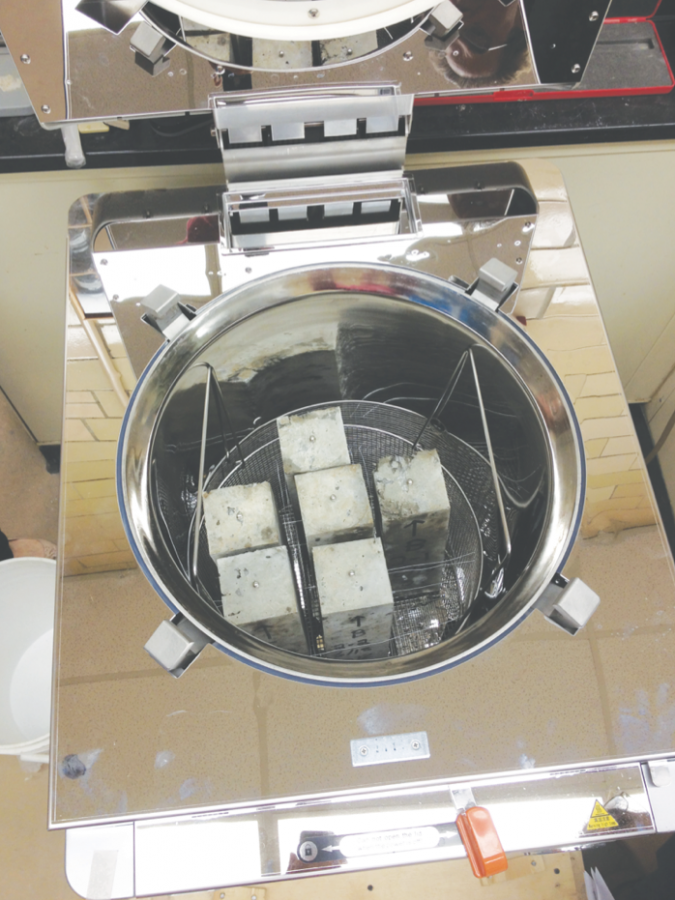Owen Killeen, a senior from Norwich, Conn., was recently selected as a Dwight D. Eisenhower Research Fellow for the Federal Highway Administration. His work for the program will be conducted at the Turner-Fairbank Highway Research Center in McLean, Va., just outside Washington, D.C.
The requirements of the fellowship include three parts: hands-on lab work, writing a formal research paper and giving a presentation at the Transportation Research Board convention in Washington, D.C., in January 2014 with 11,000 other transportation sector professionals.
Killeen’s research is working toward advancing the Autoclaved Concrete Prism Test, an accelerated test method being used to determine the alkali-silica reactivity of aggregates. He said he hopes his work will help the test become standardized in the near future.
Over time, the wear on concrete leads to durability issues and loss of service life. Killeen said he is working toward finding out which aggregates are reactive to the alkalis found in the cement, called an alkali- silica reaction, or ASR. Ultimately, the ASR creates a gel that expands in the presence of water, a main component of concrete. This expansion of the gel leads to the expansion of the concrete and creates problems for bridges and roads over time.
This summer, he will be testing the properties of five different coarse aggregates (rock), creating mix design sheets using Microsoft Excel, and casting a total of 30 different mixes of concrete. After completing the casts, he will test the prisms from each mix for expansion to the nearest 0.0001 inch by taking a reading before and after being autoclaved.
Killeen is able to test four mixes each week, requiring at least 7.5 weeks to finish his work.
Usually, the tests take one to two years to complete. Killeen is able to replicate the test in four days.
Eric Giannini, associate professor of civil, construction and environmental engineering, said he has enjoyed working with Killeen both in a research environment and a more lighthearted concrete canoe event.
“He is a diligent worker, and I met him in January when he became a member of my concrete canoe team,” Giannini said. “After that, I hired him as a research assistant and nominated him for the grant.”
Nationally, only 150 to 200 grants are given out each year. Killeen is the first UA student to receive the prestigious award. The research has been a collaboration with the University of Wyoming, the University of Texas at Austin and The University of Alabama.
“It’s bigger than me and what I’m doing here in D.C. It really reflects on UA’s College of Engineering and the department of civil, construction and environmental engineering,” Killeen said. “The faculty have done such a great job of raising the bar and recruiting bright students. I credit this great opportunity to Dean Karr, Dr. Fridley, and, last but not least, Dr. Giannini.”







